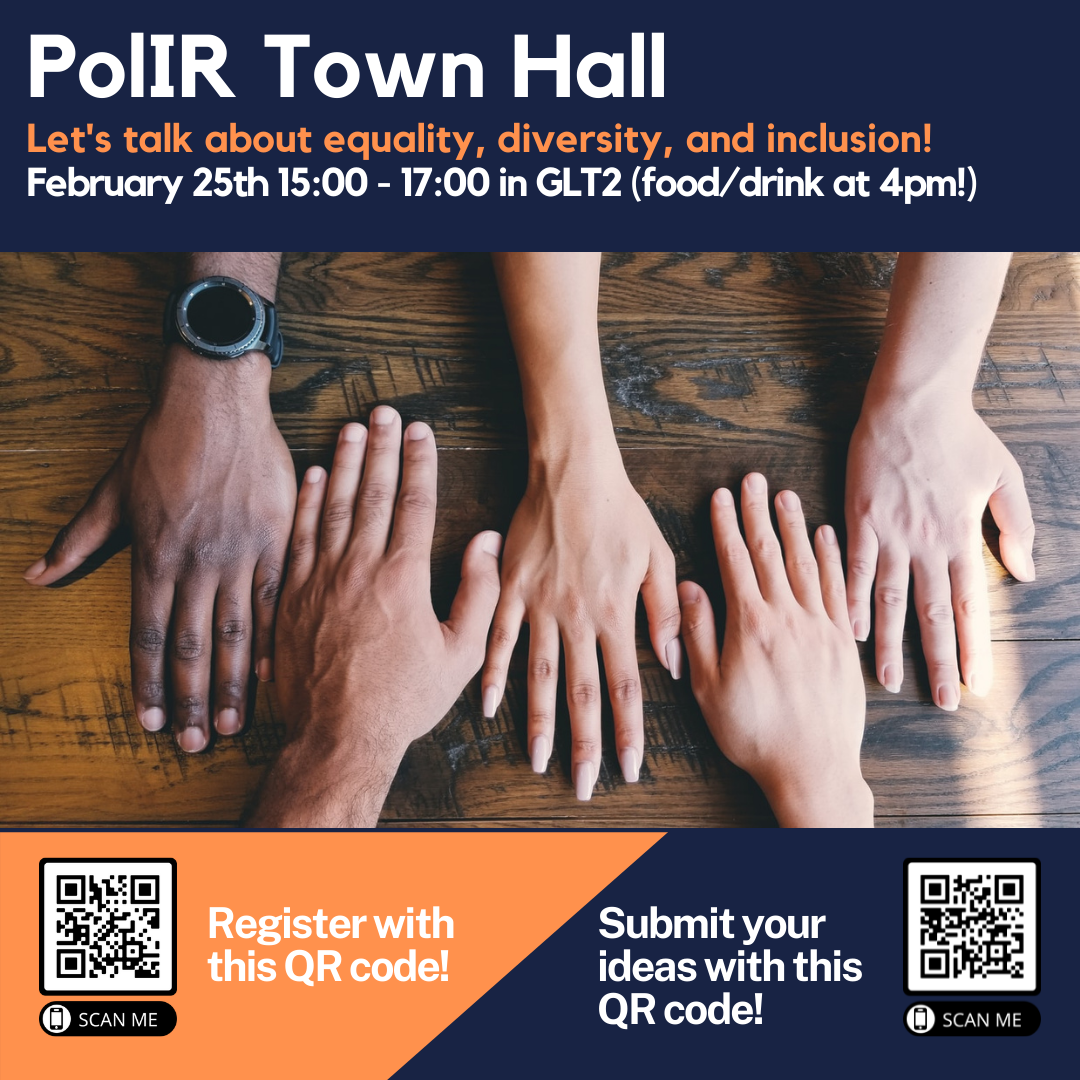The University of Kent’s very own Dr Miriam Sorace lead our first Pol-IR Town Hall on EDI (equality, diversity and inclusion) within the school. Students were invited to discuss the EDI work that the school of Politics and International Relations are undertaking, Tamika Adamson blogs.
‘The stated purpose of the Town hall setting, was to promote a sense of self-rule amongst students. It also was made clear that no topic was off limits.
Dr Ben Turner (Lecturer in Political Thought) opened by acknowledging the lack of diversity he originally had within his reading list. He felt that diversifying the reading list wasn’t just about how many people of colour are on the reading list but to acknowledge how people’s interests were presented as well. To give students that basis to follow their own interests.
One of the main pivotal points in his presentation was that his module is called ‘Introduction to political thought’ not introduction to western political thought. Hence why, he decided to radically put aside the core textbook that is usually used (as it lacked representation). And instead replace it with primary texts, in order to draw upon a wider range of authors and issues. He also touched on the importance of the visual representation of authors. One example given, was of Charles W. Mills. When first hearing his name, one might assume that he was that archetype of a middle-aged, white, male. Whilst Mills is of Afro-Caribbean heritage.
Dr Turner also spoke about the difficulties which came with diversifying reading lists. One being that although his reading list is more diverse than it was previously. He admits that those BAME (Black, Asian, Minority, Ethnic) authors which he’s included in the reading list is still heavily tied to the western lense. And was seeking input on how to tackle this. One solution given by an audience member (Arshita Nandan) was to look at other cultures (particularly the global south) and their understanding of concepts such as liberty. Though with this, it was commented that in order to get a valuable understanding he may have to move away from a “pristine” way of understanding academia (e.g., folk law, music).
Towards the end of the event, Dr Iain MacKenzie and Arshita Nandan spoke about the mechanisms in place for students to seek help if they need it. This being in the format of a contact wheel, which aims to give students opportunities for contact, rather than going through a more extensive paperwork-based system.
The townhall was a good event to look into what the university is doing specifically to address their EDI commitments. And also bring awareness to those systems in place to support students especially when discussing sensitive topics.’

